When is a dictatorship not a dictatorship? Brunei is an intriguing example of this conundrum. Technically the Sultan, Hassanal Bolkiah, with six hundred years of hereditary privilege behind him cannot be a dictator, but like kings everywhere before him he holds powers all dictators aspire to. Even violent psychopaths like Saddam Hussein or the divinely ordained, like Ayatollah Khomeini had to juggle competing powers to maintain their position but the Sultan has virtually no concrete bounds to his powers and certainly doesn’t even need to fabricate some pretence of democracy that dictators usually feel obliged to, despite the fact that only a complete cretin would be incapable of seeing through the sham. Certainly, the huge images of him on display and his controls on public demonstrations, the press and any criticism of his good self are the classic hallmarks of authoritarian rule. Yet the prisons aren’t full of political prisoners being tortured, no one is disappeared. In fact the police and judiciary are probably the best in the region. The Sultan is, broadly speaking popular with the people and not because he had created a fiction to obscure the reality.
One of the reasons he is liked is that he has used much of the country’s oil wealth for the public good: health and schooling are free, the elderly receive pensions, some subsidies exist on power, housing, essential commodities and even for doing the Haj to Mecca. Also, unlike the rest of the region he hasn’t decimated the native jungle, much of the country is pristine rainforest and a wild life lover’s paradise – although entry is priced at a level to keep riff raff such as me out, so nature’s delights can be appreciated by a better class of traveller. Once in a while he even makes the point of getting out to meet some of his citizens, so isn’t completely enveloped in the sterile bubble that only vast wealth and privilege can buy. Much criticism has been made in the West of his inordinately lavish lifestyle his wealth permits but he’s a king for fuck sake! They’re meant to have gold-plated toilet brushes and stupid shit like that.
Of much more concern to the typical traveler is the ban on alcohol, which never endears a ruler to Brits abroad, so it is hardly a popular stop on the Asian party trail. Should you feel the need to get shit faced it is not impossible, I can recommend fellow Brighton blogger, The Drinking Traveller’s report on the country ( http://drinkingtraveller.com/where-the-hell-can-i-get-a-drink-in-brunei/ ) as well as his other homages to alcohol around the globe.
So, apart from booze, what’s the problem? For many years, bar the odd sexual and financial scandal, vital to every royal families’ existence, things had pottered along quite happily until this year when he decided to launch Phase 1 of 3 of strict sharia Law. This got a lot of people outside of Brunei rather upset and led to various protests and boycotts of the Sultan’s businesses. Naturally western ire was particularly focussed on our preferred subjects of flogging for alcohol and stoning of homosexuals, with much talk of going back to the dark ages.
Whilst I wish to make it quite clear that I am no fan whatsoever of such laws, (after all the stoning of gays would leave a big dent in my Christmas card list and states of total inebriation have not been completely unknown in my life, or so I am told) we really need to appreciate a bit more depth to the subject, as nuance goes of the window in much of the media and conversations whenever sharia law is mentioned.
Before we get on to the more challenging aspects we must be prepared to accept at least some degree of cultural and religious values guiding any countries’ laws, after all our own laws do the same and we expect visitors to uphold those values. Just because taking your trousers off, jumping in a fountain and waving your willy about may be generally accepted, or even encouraged in London, doesn’t mean the rest of the world thinks this way. Having no concept of queueing order is perfectly acceptable in Kazakhstan but try queue jumping in London and you may well be beaten to a pulp on the spot, if you survive the barrage of tutting.
The Sultan made a statement in the law’s defence that it was not a step back but a move forward and in one sense he was correct. Although the sharia’s punishments we generally associate with it have always existed in Islam, their unfettered, regular implementation are much more of a modern creation. Its extremes are based upon progressively severe interpretations over the centuries, where the context for one justification is lost several centuries down the line.
Traditionally much sharia has been governed by compassion and mercy, the two most common attributes appearing in the ninety-nine names for Allah. There are numerous accounts of judgements by Mohammed being governed by these principles, which have set the tone for much of sharia ever since. Also the requirements for four reliable witnesses actually places a huge practical obstacle for prosecuting anyone for those crimes, known as Huddud in Arabic, which can lead to corporal punishment. Whilst I have been, on occasion, one of at least four witnesses to acts of sufficient lewdness and perversion to warrant such prosecution, everyone was having such a good time that no one would have been in the least bit inclined to pursue the matter legally – mind you I am pretty sure none of them were Muslims. How often are there four witnesses to the actual act of penetration that makes one guilty of adultery or sodomy, outside some of the more permissive events at home I inadvertently end up at once in a while?
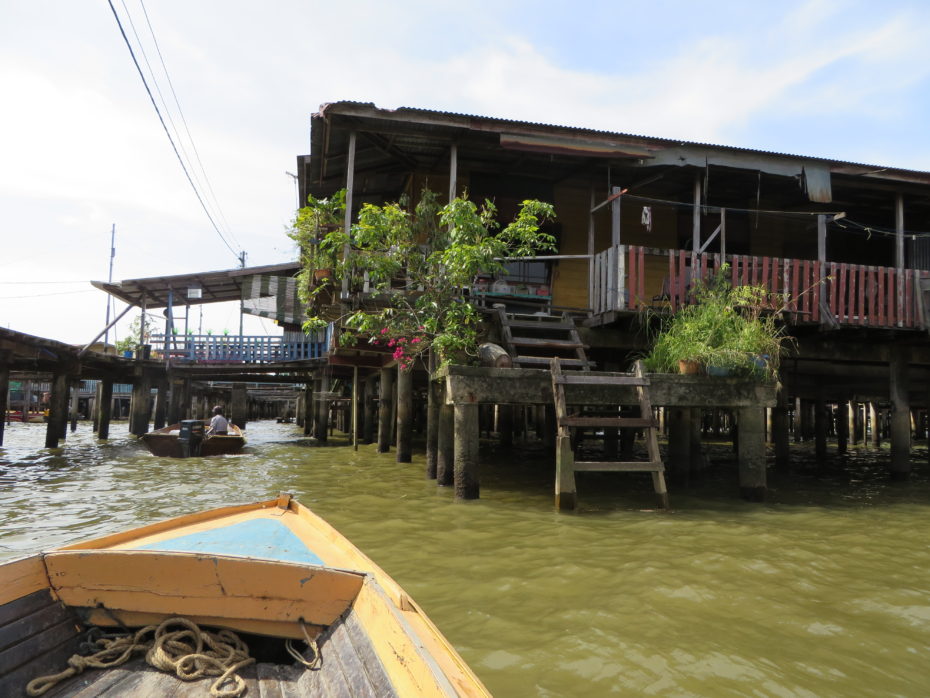
Maybe some of the money for golden domes and toilet brushes could have gone on the homes of his excellency’s citizens – here in the water village in the capital
In the entire history of the Ottoman Empire, all six hundred odd years of it, there was only one recorded case of stoning for adultery. It is particularly in the last thirty years that more extreme interpretations of sharia have been incorporated into national law in countries such as Pakistan and Sudan, often for reasons largely of political expediency but they have also been fed over the long-term by the threats, perceived or actual from the colonial era and exacerbated in more recent times by Bush’s, “with us or against us”, mentality and the war on terror.
To go back to the Quran, which we must always do in such a discussion, it doesn’t say a hell of a lot about homosexuality, beyond the divine wrath laid down upon the people of Sodom for practising their lusts on men rather than women. As is the nature of Quranic Arabic scholarship various interpretations can be put on these passages but beyond the sense that giving someone a good rodgering from the rear is probably frowned upon, there is no general condemnation of homosexuality. The next step for guidance is generally accepted to be Sahih Bukhari, the most respected collection of hadiths (traditions of the prophet Mohammed) and here the only mention of the subject is of turning effeminate men out of the house. After this point only some schools of Islamic Jurisprudence endorse harsh penalties on anything gay.
It’s instructive to look at the example of Afghanistan, a place that is often brought up as the exemplar of “backward” Islamic thought. Buggery is surprisingly common and even some Taliban figures have been known to have their “boys”, but IT’S NOT GAY HONESTLY! Yeah right! Some of the action must be fed by sexual frustration being denied access to the opposite sex outside of highly codified marriages but it nevertheless shows that these things go on everywhere despite people insisting it to be otherwise, no matter how contrary to the religion it is meant to be.
Muslim, and many Christian scholars for that matter, simply refuse to accept the idea, or fact as I prefer to call it, that some people are born gay rather than straight, as it goes against their idea of a natural order of things. They have to say people become gay due to external influences, because they are incapable of accepting that God/Allah designed them that way. The well documented examples of same-sex couples in the animal kingdom are a good example of the natural order of things. Also gay people are far more likely to have grown up facing negative influences, suffering bullying or persecution than having their sexuality nurtured by a caring family. Consequently religious interpretations are tainted with this bias.
Given the control the Sultan exerts over the clergy in Brunei there has been no tolerance of the kind of extremist ideology that supports terrorism but the proposed laws are hardly out of sync with such extremist views on social matters. So it does beg the question, “what has prompted the move”? Some have suggested (http://www.aljazeera.com/indepth/opinion/2014/05/brunei-sharia-law-at-what-cost-2014528134130788926.html) it’s to use the law to stifle rising criticism and disguise worsening economic indicators, but does he really need more powers to achieve this? Maybe with age he’s putting his past indiscretions behind him and becoming more conservative and devout, if only in his own mind. Both Malaysia and Indonesia have a relatively tolerant view of Islamic values in law so Brunei is out of step with the region and the Sultan can hardly be under pressure or need to seek support from the type of religious hardcore that try to hold leaders to ransom.
Although Islam will never embrace the concept of two grown men getting jiggy with it, the religion has and can still, leave it as a personal issue between each man an Allah in the privacy of his own home, or at least a discrete corner of a carpark. As I have endeavoured to show, it is how the law will be interpreted and implemented which will determine the outcome. For some Muslims he has done the religion a disservice by giving elements of the western media yet another stick with which to beat those “damn Muslims” with. Whatever the laws achieve they are unlikely to be of much benefit to the people of Brunei, particularly non-Muslims, who are already denied some of the freedoms offered to Muslim citizens. Asian women’s rights groups have also already expressed their concerns about aspects of the law, not that much of the western media bothered to ask their opinion.
The level of criticism has at least put a delay on the implementation of the law but not to have foreseen that would have to place doubt on the Sultan’s grasp of current affairs. To have staked so much on the law only to quietly let it fizzle out or be obliged to drop it entirely will hardly do his credibility any good. None of this may make much impression on his own fortune but the fortune of the country as a whole is another matter.




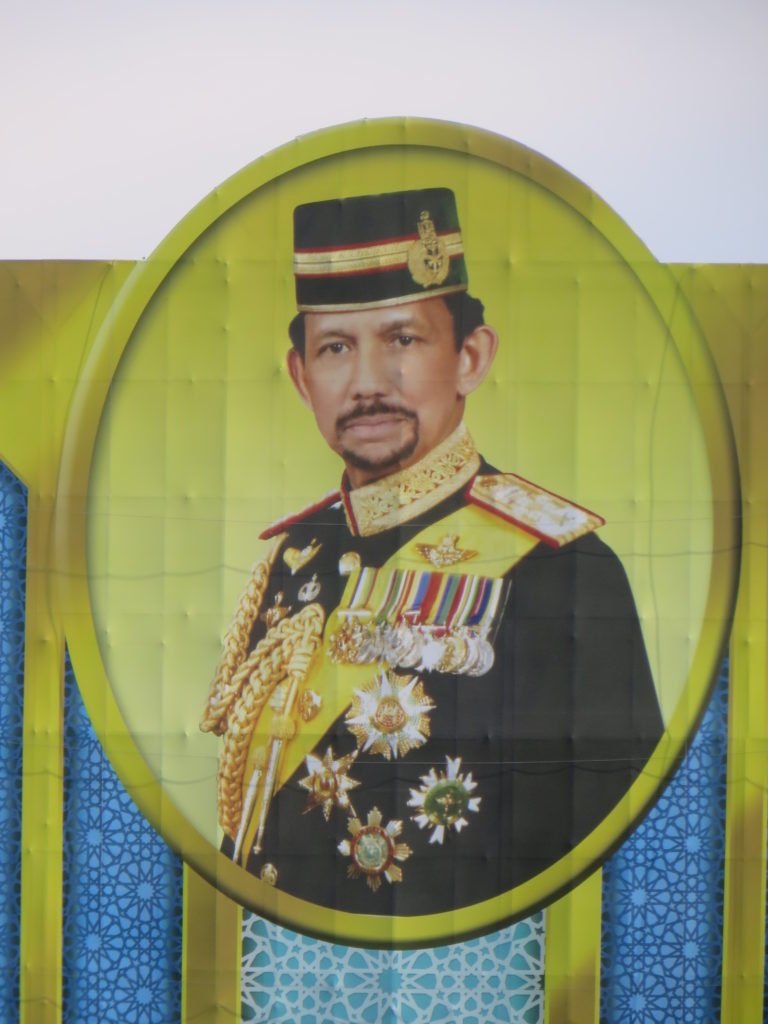
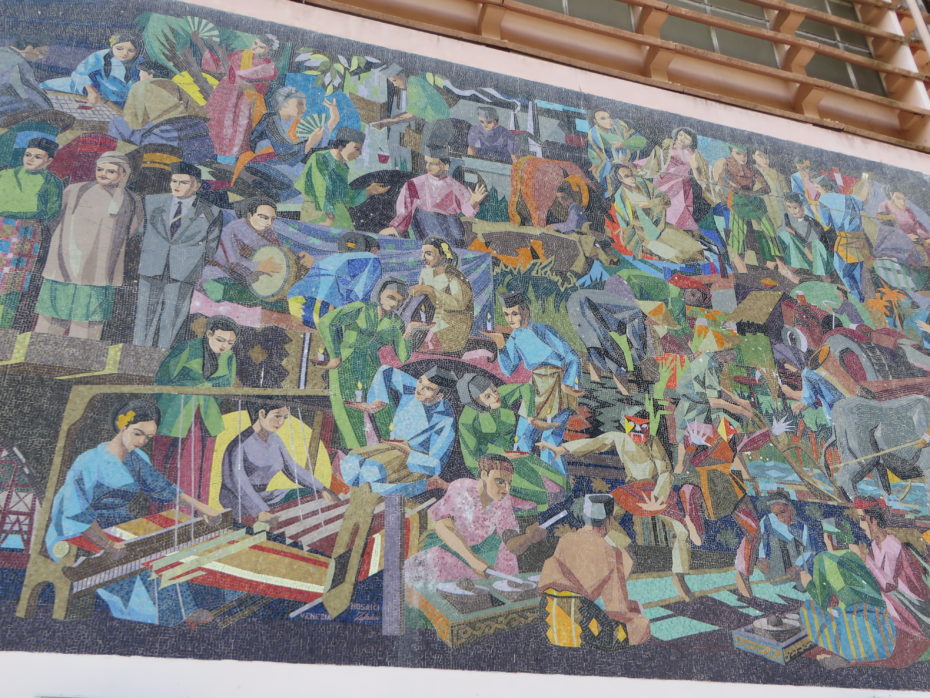
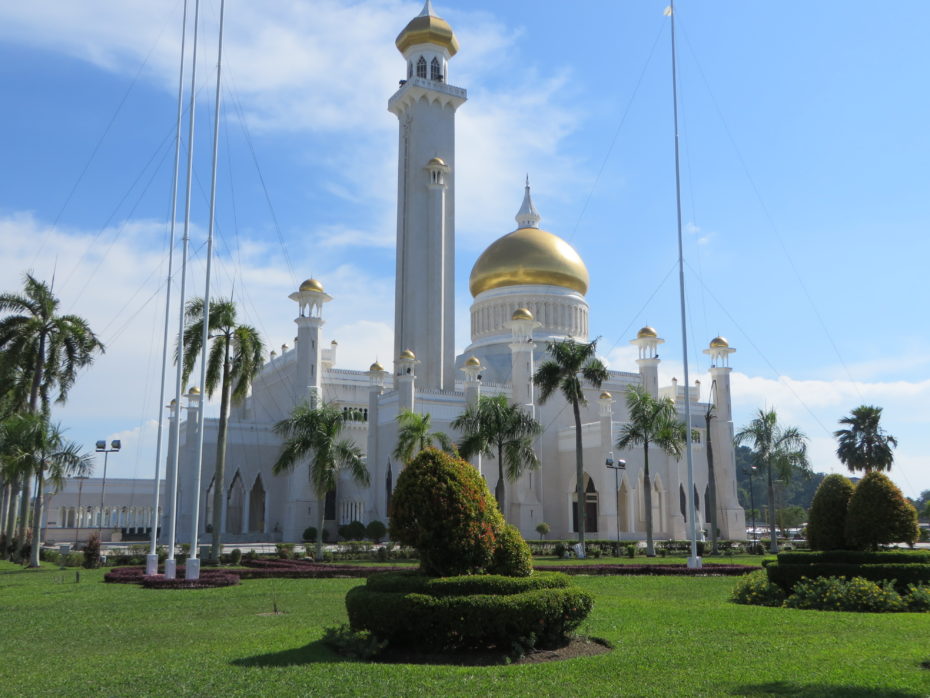
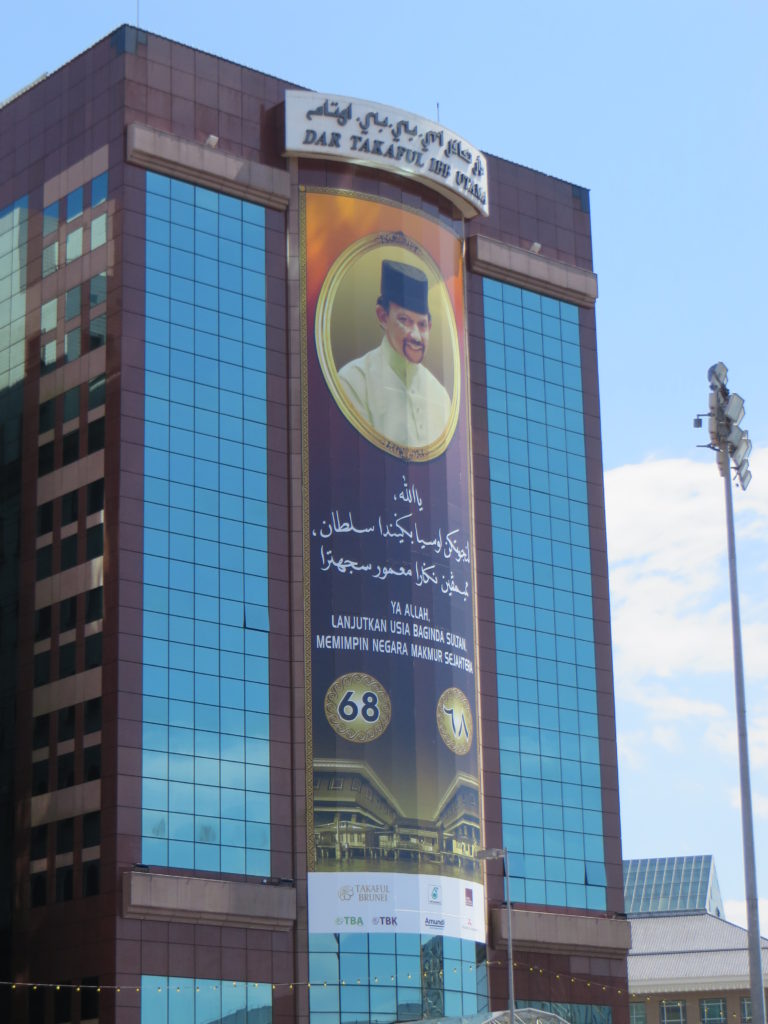
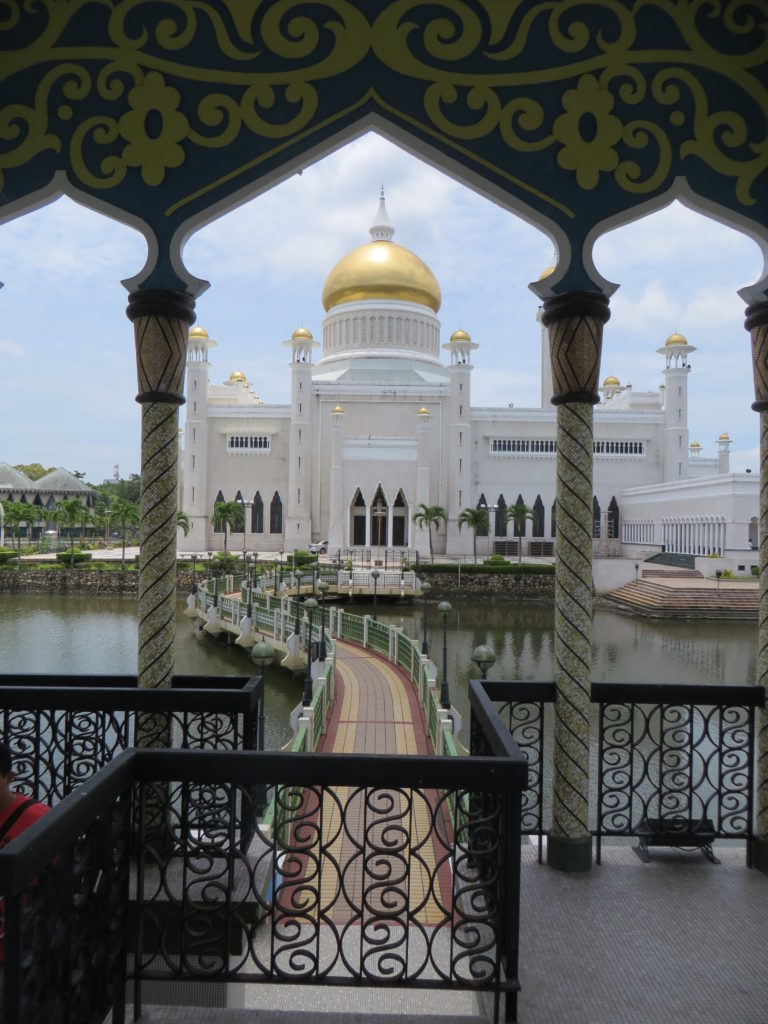

Well if the pristine wilderness is expensive enough to keep riff raff like you from experiencing it up close and personal then that doesn’t say much for vagabonds like me. While the sharia law bit is news to me, the Sultan and his vast fortune, rotting car collection and the gold-plated bathrooms of his private airplanes are not.
I have long been curious to visit this miniscule nation but somehow doubt that the dent it would put in my bank account is worth the limited amount of cultural experience gained from any such endeavor. As such thank you for my first and only (at least for the near foreseeable future) trip to the Nation of Brunei, the Abode of Peace. And yes, that is the country’s official full name.
In closing, here is an article I read a while back about everyone’s (at least in Brunei) favorite hypocritical billionaire dictator: http://www.thedailybeast.com/articles/2014/05/06/how-the-sultan-of-brunei-violated-his-sharia-law-with-me.html
Hi Derek. Sorry to take a while getting back to you but have been in Papua where internet is limited but more importantly my blog has been blocked by the powers that be,, got around it now I am in yogya. If they didn’t like me before I wrote about papua they will hate me once they read what I will be saying. I will take it as a compliment that I am demand worthy of blocking as I could access other WordPress sites, even if it is just for a technical reason- any thoughts?. Anyway Brunei, as you have to pass through from Sarawak to Sabah I it made sense to see a bit of it but your analysis is fair, there’s not really a good enough reason to go out of your way of spend a lot of money going there, but of course the people are as friendly as elsewhere in the region. As mere riff raff I gaze in envy at your most warranted vagabond status.
No worries….hmmm that is mighty strange. I encountered web censorship in Vietnam but never in Indonesia. You’ll have to let me know more about the exact error message you saw. Curious as to your take on Papua too. I haven’t been there yet but heard much during my year traveling around Indonesia from locals and Indonesian travel bloggers.
The first day I got there it was OK but after that it just wouldn’t let me sign in or a not available msg came up but I did get one internet-positif msg. Now I am in yogya I can connect via my WordPress app with a vpn but can’t seem to connect to WordPress. Com at all but that could just be a connectivity issue. All access in Papua was very slow anyway, some regimes keep it slow deliberately which effectively censors things like YouTube or stuff with images without actually banning them. Will have a go from an internet cafe later and see what happens
Managed to get onto the site ok at the internet cafe so it must have just been in Papua but thats not a major surprise I suppose given the situation there. If you know any indonesians who have blogged about papua in english (or would be worth using google translate on) I would be interested in having a look. Would have liked to stay longer but couldnt afford to keep paying for air fares to get around. Both Papuans and Indonesians (of course) were equally very friendly and I will have at least got a couple of blog posts worth out of it. Ended up treking in the Baliem valley which was great.
Now it is my turn to apologize for my delayed response, been trying to make the most of my last few days in Mexico. Jogja is amazing, that was my base of operations last year. So much to do and see within a short motorcycle ride. How long are you in town for?
Yeah, Papua internet is notorious but Indonesian culture is so addicted to social media (particularly Twitter and Path) that they actually have decent internet speeds, at least compared to some of the other southeast Asian nations. Of course this depends highly on where in the country you are. Jakarta, Jogja, Shibuya and Bali I was able to consistently get over 4mbps out of my personal wifi hotspot.
Yeah, they definitely blog in English. Will compile some links or introduce you on Twitter. In a rush?
I imagine your internet workload far exceeds mine, besides its your living so no need to apologise. Have struggled with erratic wi fi but internet cafes have generally been good. Will be here for a week or so. Never heard so many bad buskers as here, are they deliberately shit so we will pay them to go away? Not that I was tempted but I hope the state of the hookers I saw wasn’t representative of the city, but I have to say the rat population was highly impressive. Sure I won’t have trouble finding things to see and do. I know you are busy so if you do find some time to send some links it would be gratefully appreciated but no rush, I just wanted to get a flavour of how the papua situation is viewed by Indonesians who are more informed about what’s going on. Just had a pair of good buskers so not all bad thankfully. All the best g
Just replied to you and it disappeared??? I imagine your internet workload is immense and besides it’s your living so no need to apologise, not everyone on the internet has your dedication to responding to people. Will be here for about a week so will have time to see some stuff. Beginning to suspect that most of the buskers are deliberately shit so we will pay to get rid of them. I hope the saggy prostitutes I saw were not representative of the city but I have to say i was impressed by the rat population. I know you are busy but if you get the chance to send some links it would be gratefully appreciated, I just wanted to get a feel of how the situation in Papua is perceived by the more aware Indonesians. Many thanks g
For demand read deemed- bloody auto spell thing!